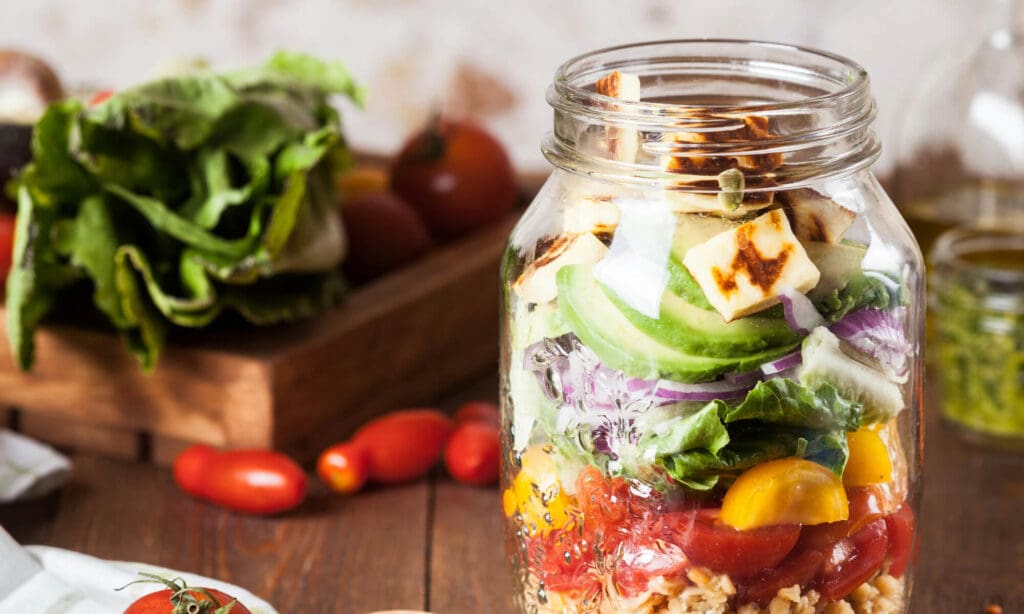
Foods to Support Your Menstrual Health
Your menstrual cycle is an important aspect of your wellbeing. It influences everything from your energy, mood, and physical health to your nutritional needs. Adopting a diet rich in specific nutrients can significantly improve how you feel throughout your cycle. Specifically, the right foods can help alleviate common symptoms like cramps, bloating, fatigue, and mood swings, making your period easier to manage.
In this blog, we’ll explore the benefits of a nutrient-rich diet, along with practical tips on incorporating them into your diet for optimal benefits.
Why does nutrition matter?
During your period, your body undergoes significant changes. It’s important to keep an eye on your diet. Hormonal fluctuations can cause inflammation, water retention, changes in energy levels, and shifts in mood. As a result, your body requires a unique set of nutrients to help manage these changes. By maintaining a diet rich in specific vitamins and minerals, you can minimise physical discomfort, stabilise your emotions, and support overall wellness during your period.
What foods support menstrual health?
Let’s explore some of the best foods to incorporate into your diet to help manage menstrual symptoms and enhance your wellbeing:
Water-rich fruits
Staying hydrated is key to reducing bloating and fatigue. Water-rich fruits like watermelon, cucumber, and strawberries can help maintain your fluid levels and keep you energised. These fruits are also great for satisfying sugar cravings in a healthier way.
Tips: Add watermelon or strawberries to a fruit salad, or blend them with cucumber and ice for a refreshing smoothie. These fruits can also be a hydrating snack to keep with you throughout the day.
Bananas
Bananas are high in potassium, which helps manage fluid retention and reduce bloating. Potassium works alongside magnesium to relax muscles, helping relieve cramps. Bananas also contain vitamin B6, which has been found to reduce irritability and mood swings associated with PMS.
Tips: Slice bananas onto cereal or blend into a smoothie for a convenient and nutritious snack. They’re also perfect to grab when you’re on the go, offering a natural energy boost.
Leafy greens
Leafy greens, like spinach, kale, and Swiss chard are packed with iron. It’s a vital mineral that the body loses during menstruation. Heavy bleeding, in particular, can sometimes lead to iron deficiency, which often results in fatigue, dizziness, and weakness. These greens are also rich in magnesium, a mineral that can help reduce cramps by relaxing muscles.
Tip: Add a handful of spinach to smoothies, salads, or soups. You can also sauté kale with a bit of garlic and olive oil as a nutrient-dense side dish.
Fatty fish
Salmon, sardines, and mackerel are excellent sources of omega-3 fatty acids. These healthy fats possess anti-inflammatory properties that can reduce the intensity of menstrual cramps. by decreasing the production of prostaglandins — hormone-like chemicals responsible for triggering uterine contractions and pain.
Tip: Aim to include fatty fish in your meals at least twice a week. Grill or bake salmon as a main dish, or add sardines to salads for a convenient omega-3 boost. If fresh fish isn’t accessible, canned options provide a similar benefit.
Whole grains
Whole grains, such as oats, brown rice, and quinoa, are high in complex carbohydrates and fibre, which help stabilise blood sugar levels. This is especially beneficial during menstruation, as fluctuations in blood sugar can lead to mood swings and increased cravings. Whole grains are also rich in B vitamins, essential for energy production and reducing fatigue.
Tip: Start your day with a bowl of oatmeal topped with fruits and nuts, or switch white rice for fibre-rich brown rice or quinoa. These grains can be easily added to various meals for sustained energy throughout the day.
Nuts and seeds
Almonds, flaxseeds, and chia seeds are nutrient powerhouses. They provide healthy fats, magnesium, and vitamin E. Magnesium helps ease muscle tension and cramps, while vitamin E has been shown to reduce breast tenderness. Chia seeds are also beneficial because they contain omega-3, and for hydration as they absorb water and help maintain fluid balance.
Tip: Sprinkle chia seeds on yoghurt, mix ground flax seeds into smoothies, or keep a small bag of almonds in your bag for an easy snack. Combining different nuts and seeds in trail mix can also make a convenient on-the-go snack.
Dark chocolate
Yes, you read that right! Dark chocolate (at least 70% cocoa) is rich in magnesium, iron, and antioxidants. Magnesium helps with muscle relaxation, while iron boosts energy levels by replenishing what is lost during menstruation. Plus, indulging in a little chocolate can regulate your mood by increasing serotonin levels. These can help combat irritability and mood swings.
Tip: Enjoy a small piece of dark chocolate as an indulgent treat, or mix a little into oatmeal or yoghurt for a mood-boosting snack. Choosing chocolate with higher cocoa content also provides more health benefits and less sugar.
Yoghurt and Probiotics
Yoghurt and other probiotic-rich foods, like kefir and sauerkraut, support gut health. This can be especially helpful during your period, when bloating and digestive discomfort are common. Probiotics promote a healthy balance of gut bacteria, which can reduce bloating. Yoghurt is also a good source of calcium, which some studies suggest can alleviate cramps.
Tips: Enjoy a bowl of plain yoghurt with honey and fresh berries, or add kefir to smoothies. Probiotic supplements are another option if you’re looking to boost gut health consistently.
Dates and honey
Dates and honey are not only delicious but also powerful foods celebrated in both the Qur’an and Sunnah for their health benefits. The Prophet Muhammad ﷺ often ate dates, like ajwa [Bukhari 5445]. Dates are packed with natural sugars for energy, fibre for digestion, and essential vitamins that strengthen the body. Honey, mentioned in the Qur’an as a “healing for mankind” (Qur’an 16:69), also has natural antibacterial properties, boosts immunity, and soothes sore throats.
Tips: Try starting your morning with a few dates or adding a spoonful of honey to warm water with a slice of lemon for a nourishing drink. You can also blend them into smoothies or enjoy dates with nuts for a quick, energy-boosting snack.
What foods should I avoid?
While it’s important to focus on nutrient-rich foods, it’s worth noting that certain foods can exacerbate period symptoms. Here’s a look at some foods best avoided:
- Processed foods: High in sodium, processed foods contribute to water retention and bloating. Try to opt for fresh, whole foods when possible.
- Sugary snacks: While sugary treats can seem comforting, they often lead to a quick energy spike followed by a crash. This can worsen mood swings and fatigue.
- Caffeine: Found in coffee, tea, and chocolate, caffeine can increase anxiety, irritability, and even menstrual cramps due to its vasoconstrictive properties (narrowing blood vessels).
Big picture: Islam & eating well
The Prophet ﷺ is described as the ideal role model for humanity: “Indeed, in the Messenger of Allāh ﷺ, you have an excellent example for whoever has hope in Allāh and the Last Day and remembers Allāh often” (Qur’ān 33:21).
His guidance on food (highlighted throughout the Qur’ān and Sunnah) reflects mindful eating, balance, and gratitude. Food is a gift from Allāh ﷻ, intended to nourish both body and soul. The Prophet’s ﷺ simple yet nutritious diet — including wholesome foods like dates, figs, honey, olive oil, and grains — offers valuable health benefits and supports natural wellness.
Eating with intention, as encouraged by the Sunnah, also connects us to the purpose of maintaining gratitude to Allāh. Islam emphasises moderation, advising in the Qur’ān, “Eat and drink but avoid excess” (Qur’ān 20:81). In practice, the Prophet ﷺ advised leaving one-third of the stomach for food, one-third for water, and one-third empty, which helps balance physical health and inner peace (Sunan Ibn Mājah 3349).
Caring for your diet, especially around menstrual health, nurtures overall wellbeing. Thoughtful food choices can ease menstrual cycles and support your body’s natural rhythm, promoting a quality of life that honours both your physical health and spiritual balance.

